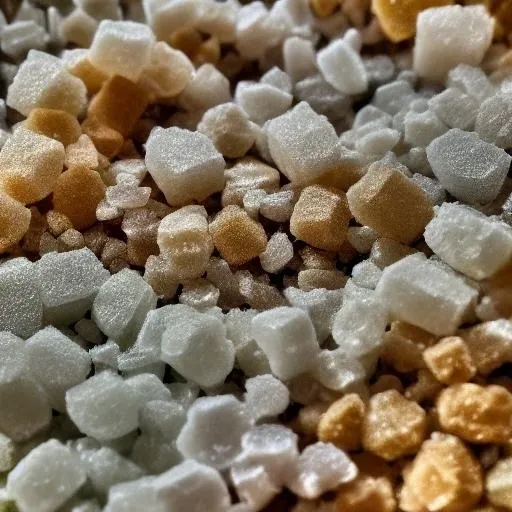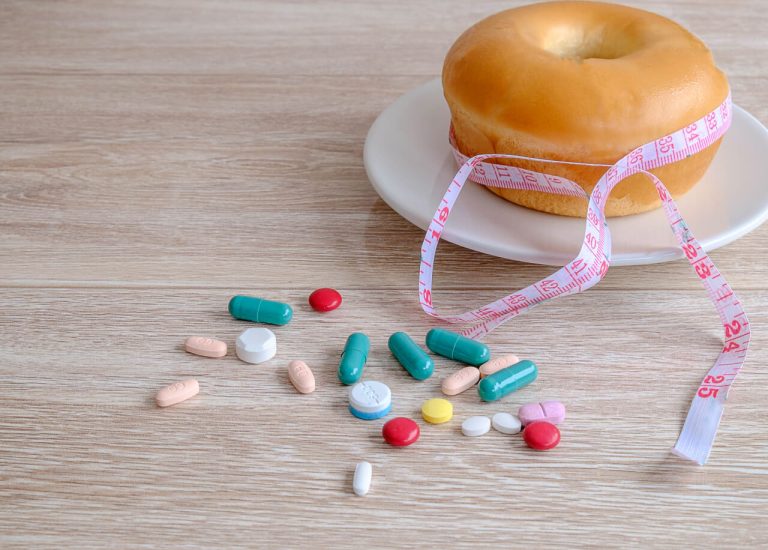A Sweet Debate: Natural or Artificial Sugar?

In the realm of nutrition and health, few topics are as debated and discussed as sugars. From the natural sweetness of fruits to the refined sugars in our processed foods, our relationship with this essential yet often maligned ingredient is complex. In recent years, the rise of artificial sweeteners has added another layer to the conversation, raising questions about their safety and efficacy. In this comprehensive exploration, we will delve into the world of sugars, examining their origins, impacts on health, and the ongoing debate between natural and artificial options.
Understanding Sugars: Natural vs. Artificial
Sugars, also known as carbohydrates, are fundamental molecules found in various foods, providing energy for the body’s functions. They come in two primary forms: natural and artificial.
Natural sugars occur naturally in foods such as fruits, vegetables, dairy products, and grains. These sugars, such as fructose in fruit and lactose in milk, are accompanied by other nutrients like fiber, vitamins, and minerals, which contribute to their overall nutritional value. The list below contains natural added sugars:
- Brown sugar
- Corn sweetener
- Corn syrup
- Fruit juice concentrates
- High-fructose corn syrup
- Honey
- Invert sugar
- Malt sugar
- Molasses
- Raw sugar
- Sugar
- Sugar molecules ending in “ose” (dextrose, fructose, glucose, lactose, maltose, sucrose)
- Syrup
Artificial sugars, on the other hand, are synthetic compounds designed to mimic the taste of sugar without the calories. These sweeteners are often used in low-calorie or sugar-free products as alternatives to sugar. In the United States, the Food and Drug Administration (FDA) permits the utilization of the following sugar substitutes:
- Acesulfame potassium (marketed as Sweet One and Sunett)
- Advantame
- Aspartame (known as NutraSweet and Equal)
- Neotame (branded as Newtame)
- Saccharin (sold as Sweet’N Low)
- Sucralose (commonly recognized as Splenda)
Novel sweeteners are extracted from natural, plant sources. These are often less processed than their artificial sweetener counterparts with less caloric and glycemic load than natural sweeteners.
- Allulose
- Stevia
- Tagatose
- Monk Fruit
Sugar alcohols, despite their name, are neither sugar nor alcohol. They are commonly extracted from fruits and vegetables, although synthetic production is also possible. Sugar alcohols have a lower calorie density compared to natural sugar and are less sweet than artificial sweeteners. They are frequently favored by individuals with diabetes due to their perceived minimal impact on blood glucose levels. However, it’s crucial to recognize that sugar alcohols can still lead to elevated blood glucose levels.
- Sorbitol
- Mannitol
- Maltitol
- Erythritol
- Xylitol
- Isomalt
- Lactitol
The Impact on Health
The consumption of sugars, both natural and artificial, has significant implications for health. Natural sugars, when consumed in whole foods like fruits and vegetables, are generally considered part of a healthy diet. However, excessive intake of refined sugars, found in processed foods and sugary beverages, has been linked to various health issues, including obesity, type 2 diabetes, and cardiovascular disease.
Artificial sweeteners have been marketed as a healthier alternative to sugar, appealing to those looking to reduce their calorie intake or manage conditions like diabetes. However, research on the long-term effects of artificial sweeteners is mixed, with some studies suggesting potential negative impacts on metabolism, mental health, gut health, and even weight gain.
The Hidden Harms
While artificial sweeteners may seem like a boon for those watching their weight or managing conditions like diabetes, mounting evidence suggests that their consumption may come with a host of unintended consequences.
One of the most concerning risks associated with artificial sugars is their potential impact on metabolic health. Several studies have linked their consumption to disruptions in metabolism, insulin resistance, and alterations in gut microbiota composition. These changes can have far-reaching effects on overall health, increasing the risk of conditions such as obesity, type 2 diabetes, and cardiovascular disease.
Furthermore, some research suggests a potential link between artificial sweeteners and negative neurological outcomes, including headaches, migraines, and mood disturbances. While the mechanisms underlying these effects are still not fully understood, they raise significant concerns about the safety of these additives, particularly for sensitive individuals.
Another area of concern is the role of artificial sugars in influencing appetite and food preferences. Contrary to their intended purpose of reducing calorie intake, some studies suggest that consuming artificial sweeteners may actually lead to increased cravings for sweet and calorie-dense foods. This phenomenon, known as the “sweetness trap,” can sabotage weight loss efforts and contribute to unhealthy eating patterns.
Navigating the Risks
In light of these potential harms, it’s essential for consumers to approach artificial sweeteners with caution and awareness. While they may offer a temporary solution for reducing sugar intake, they are by no means a panacea for health.
Instead, individuals are encouraged to focus on adopting a balanced and varied diet that emphasizes whole, unprocessed foods whenever possible. By prioritizing fruits, vegetables, lean proteins, and whole grains, individuals can naturally satisfy their sweet cravings while reaping the nutritional benefits of these wholesome foods.
For those looking to reduce their sugar intake, alternatives such as natural sweeteners like monk fruit and tagatose may offer a safer and more sustainable option. Plant-based sweeteners provide sweetness without the potential risks associated with artificial sugars, making them a preferable choice for many health-conscious consumers.
Conclusion
The debate between natural and artificial sugars is unlikely to be resolved anytime soon, as both sides present valid arguments and considerations. Ultimately, the key to making informed choices lies in understanding the nuances of each option and considering individual health goals and preferences. Whether enjoying the sweetness of a ripe piece of fruit or savoring a sugar-free dessert, moderation and balance are essential for overall health and well-being.
Sources:
1. Sugar 101 | American Heart Association
2. Artificial sweeteners and other sugar substitutes – Mayo Clinic
3. Tandel KR. Sugar substitutes: Health controversy over perceived benefits. J Pharmacol Pharmacother. 2011 Oct;2(4):236-43. doi: 10.4103/0976-500X.85936. PMID: 22025850; PMCID: PMC3198517.
4. Artificial sweeteners: sugar-free, but at what cost? – Harvard Health
5. Facts About Sugar and Sugar Substitutes | Johns Hopkins Medicine
6. Artificial Sweeteners and Cancer – NCI
7. Debras C, Chazelas E, Sellem L, Porcher R, Druesne-Pecollo N, Esseddik Y et al. Artificial sweeteners and risk of cardiovascular diseases: results from the prospective NutriNet-Santé cohort BMJ 2022; 378 :e071204 doi:10.1136/bmj-2022-071204
8. How healthy is sugar alcohol? – Harvard Health
9. Sugar alcohol: Types, benefits, and risks (medicalnewstoday.com)
10. Sugar Alcohol – an overview | ScienceDirect Topics
“At Dynamic Wellness Solutions, we believe in empowering you with the knowledge and tools to make informed choices that resonate with your unique well-being journey. Our commitment to transparency ensures that you navigate the intricate world of nutrition with clarity, embracing the transformative power of honest and truthful information. Join us on this dynamic path to wellness, where your health and vitality are at the heart of every decision we make together.”


